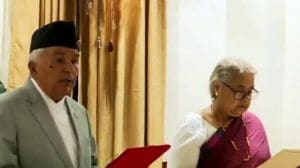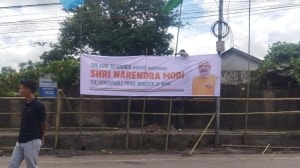Milestone in Pakistan
An elected government completes a full term,but the case for democratic assertion isnt fully won
An elected government completes a full term,but the case for democratic assertion isnt fully won
Pakistans National Assembly has been dissolved on schedule,marking the first time an elected government has completed its full term or been allowed to do so by the army. The milestone is obviously significant in Pakistans political history. And it owes in great part to President Asif Ali Zardaris skills of survival and in carrying along a political coalition. His Pakistan Peoples Party had won power indeed the vote in the aftermath of Benazir Bhuttos assassination. Zardari managed to not only get a firm grip on the reins of power within the party,but also strike a working relationship with coalition partners as well as the opposition. In fact,these skills will be called upon in the next few days,as a caretaker arrangement must be decided upon due to the landmark 20th amendment of 2012 in consultation with the opposition.
Yet,there needs to be caution against over-reading the tea leaves to conclude that the case for democratic assertion has been won. Zardari took immense care to avoid being drawn into any confrontation with the army,especially with its chief,General Ashfaq Kayani. Neither Zardari nor the PPP prime ministers in the last five years betrayed any ambition to assert their authority over the army or to influence personnel changes in the forces,barring the odd adventurism for example,attempting to cut the ISIs wings. Foreign policy and national security remained,throughout,the preserve of Rawalpindi. Even after the militarys obvious embarrassment on the capture of Osama bin Laden in Abbottabad,the government turned down the temptation,as it were,to rework its relations with army HQ. The division of policymaking with the army had a bearing on relations with India. Zardari has been an enthusiastic interlocutor for taking the peace process forward. However,the army gave him no chance to deliver on Indias concerns on terrorism,especially after 26/11,or on Afghanistan.
If this milestone is to the credit of the politicians as much as it is to Kayani,they must now together take stock of the increased sectarian strife in the country,its precarious economy and its frayed relations with other countries,particularly the US.
Photos





- 01
- 02
- 03
- 04
- 05


























